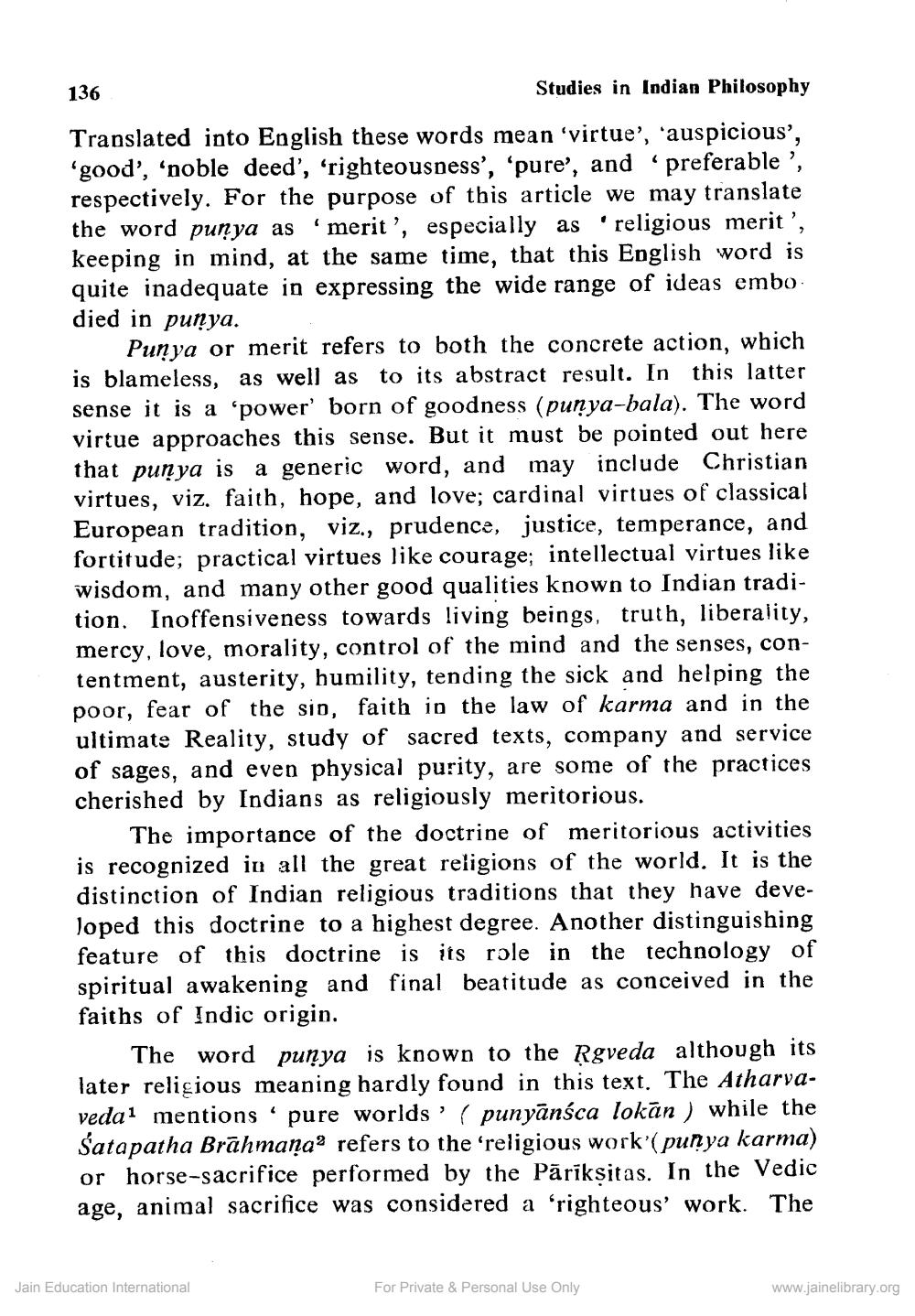________________
136
Studies in Indian Philosophy
Translated into English these words mean 'virtue', 'auspicious', 'good', 'noble deed', 'righteousness', 'pure', and preferable ?, respectively. For the purpose of this article we may translate the word punya as 'merit', especially as 'religious merit', keeping in mind, at the same time, that this English word is quite inadequate in expressing the wide range of ideas embo. died in punya.
Punya or merit refers to both the concrete action, which is blameless, as well as to its abstract result. In this latter sense it is a 'power' born of goodness (punya-bala). The word virtue approaches this sense. But it must be pointed out here that punya is a generic word, and may include Christian virtues, viz. faith, hope, and love; cardinal virtues of classical European tradition, viz., prudence, justice, temperance, and fortitude; practical virtues like courage; intellectual virtues like wisdom, and many other good qualities known to Indian tradition. Inoffensiveness towards living beings, truth, liberality, mercy, love, morality, control of the mind and the senses, contentment, austerity, humility, tending the sick and helping the poor, fear of the sin, faith in the law of karma and in the ultimate Reality, study of sacred texts, company and service of sages, and even physical purity, are some of the practices cherished by Indians as religiously meritorious.
The importance of the doctrine of meritorious activities is recognized in all the great religions of the world. It is the distinction of Indian religious traditions that they have deveJoped this doctrine to a highest degree. Another distinguishing feature of this doctrine is its role in the technology of spiritual awakening and final beatitude as conceived in the faiths of Indic origin.
The word punya is known to the Rgveda although its later religious meaning hardly found in this text. The Atharvavedal mentions' pure worlds ' ( punyānsca lokān ) while the Satapatha Brahmana' refers to the 'religious work'( punya karma) or horse-sacrifice performed by the Pāriksitas. In the Vedic age, animal sacrifice was considered a “righteous' work. The
Jain Education International
For Private & Personal Use Only
www.jainelibrary.org




